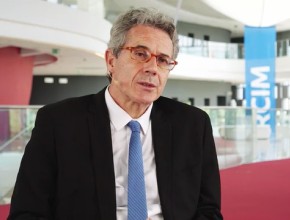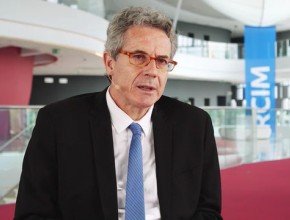When should prophylactic antibiotics be considered during travel? What type of antibiotic and what treatment duration are recommended?
Mark S. Riddle, MD: Generally, we do not recommend prophylactic antibiotics to prevent traveler’s diarrhea. One of the main reasons why is that we have such good treatment that if you get sick, you get treated. You can take a single dose of antibiotic and get well very quickly. So there is not really a reason to prevent it, given the good treatment.
However, if you are a person who has a critical travel, for example, you are going to a very important business meeting and you cannot tolerate being sick and missing out on your itinerary or you have underlying health conditions where if you get a bout of traveler’s diarrhea, it may affect your other health conditions, then prophylaxis might be considered.
In terms of what to do for prophylaxis, there is a couple of options. One nonantibiotic option is bismuth subsalicylate. I am not sure if it is available everywhere, but it has been shown in clinical trials to be effective in about 65% to 70% of the time in preventing traveler’s diarrhea.
If you do not have access to bismuth subsalicylate, then you can take an antibiotic. Traditionally, fluoroquinolones have been used but they have fallen out of favor because of emerging resistance, and the effect of taking long-term quinolones to prevent traveler’s diarrhea, which is self-limiting, is not advised. There is no licensed antibiotics for prevention of traveler’s diarrhea, but one that has been studied the most recently and appears to be relatively safe is rifaximin. Rifaximin is a nonabsorbable antibiotic that has been used now in 4 or 5 clinical trials of prevention. You can take it for up to 2 weeks 2 times a day. It prevents anywhere from 50% to 75% of diarrhea. It works better in countries where there is more diarrheagenic Escherichia coli, like enterotoxigenic E coli (ETEC) or enteroaggregative E coli. It does not seem to work so well in places in Southeast Asia where there is more invasive pathogens, like Campylobacter, Shigella, or Salmonella.
Bottom line, you do not generally need to take an antibiotic to prevent traveler’s diarrhea because we have such good treatment, but if you do, Pepto-Bismol (bismuth subsalicylate) or rifaximin may be an option.
 English
English
 Español
Español
 українська
українська











